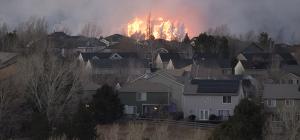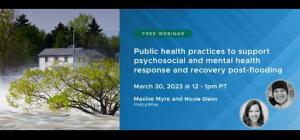Adaptation planning for sea level rise – Understanding the public health implications
Tracey Wade
This webinar summarizes findings from the NCCEH/CLIMAtlantic “Sea level rise and public health implications” project. Please see the full project description and companion reports here.
The health impacts of sea level rise have not been well researched in Canada or elsewhere. The objective of this project was to improve understanding of the public health impacts associated with sea level rise, and to demonstrate how public-health-driven actions at the community level can be integrated into adaptation plans to mitigate these impacts. Report 1 of the four-part series identified geographic areas of Canada’s coastline that are most exposed to impacts from sea level rise. Report 2 established the potential health impacts resulting from exposure to sea level rise based on literature. Report 3 outlined results of a scan of community-based planning documents to determine if and how sea level rise and health were addressed. Given the lack of integration of public health considerations generally in climate change adaptation planning, or specifically related to sea level rise, Report 4 identified ways to integrate an understanding of health impacts related to sea level rise in climate change adaptation planning and implementation by communities and provinces/territories. This webinar will summarize the findings of the series and identify how community planners and public health officials can work together to improve consideration of health in climate adaptation planning for coastal communities in Canada.
Tracey Wade has more than 20 years of professional planning experience in primarily rural communities in Atlantic Canada. She has managed a wide range of planning exercises in areas of climate change, recreation, land use, health, and sustainability. Most recently, she has led projects on the health impacts of climate change, provincial park planning, and land use plan development. Specifically related to climate change, Tracey has been involved in preparing Climate Change Action Plans locally, training professional planners in the Atlantic region about climate change adaptation planning, and has participated in a range of climate-related policy work from the development of flood protection policy to assessing community vulnerability and health impacts. Tracey was the project lead for the New Brunswick HealthADAPT project and was trained as a Climate Reality Leader in 2020.










